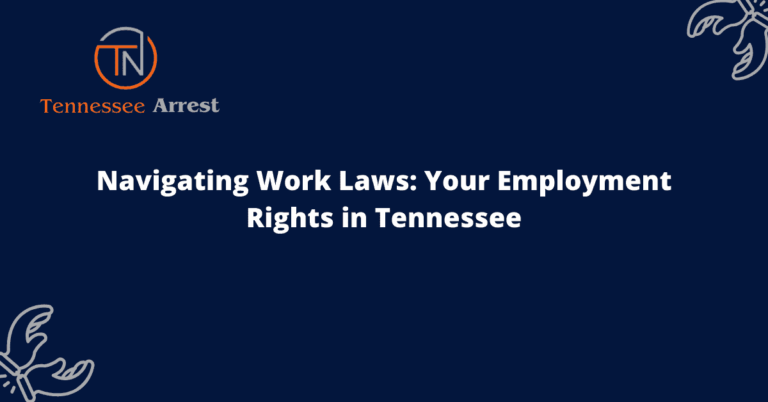Bail and Bond in Tennessee: What You Need to Know
Bail and bond are two important concepts in the legal system, and understanding how they work is crucial if you find yourself or a loved one in a situation where you need to secure release from jail. In Tennessee, the rules and regulations surrounding bail and bond can be complex, so it’s important to have a clear understanding of the process. In this article, we will explore the basics of bail and bond in Tennessee, including what they are, how they work, and what you need to know to navigate the legal system effectively.
Understanding Bail and Bond in Tennessee
When it comes to navigating the legal system in Tennessee, having a clear understanding of bail and bond is crucial. These two concepts play a significant role in securing release from jail. In this article, we will delve into the basics of bail and bond in Tennessee, explaining what they are, how they work, and providing essential information to help you navigate the legal process effectively.
What is Bail?
Bail refers to the process of securing the release of a defendant from jail while they await their trial. It involves the payment of a certain amount of money or property as collateral. The purpose of bail is to ensure that the defendant appears in court for their trial. If the defendant fails to appear, the bail money or property can be forfeited.
How Does Bail Work?
Once an individual is arrested, a bail amount is set by the court. This amount varies depending on the severity of the crime and other factors. If the defendant or their family cannot afford to pay the full bail amount, they can seek assistance from a bail bondsman.
Understanding Bail Bonds
A bail bond is a contract between the defendant, the court, and a bail bondsman. The bondsman agrees to pay the full bail amount on behalf of the defendant, in exchange for a non-refundable fee, usually a percentage of the total bail amount. The bondsman will also require collateral, such as property or other assets, to secure the bond.
Conditions of Release
When a defendant is released on bail, they are required to comply with certain conditions set by the court. These conditions may include regular check-ins with a probation officer, travel restrictions, or attending required court appearances. Failure to comply with these conditions can result in the revocation of bail and the defendant being returned to jail.
What Happens to the Bail Money?
If the defendant follows all the conditions of their release and appears for all court proceedings, the bail money will be refunded by the court, regardless of whether the defendant is found guilty or not. However, if the defendant fails to appear in court, the bail money is forfeited, and a warrant for their arrest may be issued.
FAQs
What is bail and bond?
Bail and bond are legal terms that refer to the temporary release of a person who has been accused of a crime, in exchange for a certain amount of money or collateral.
How does bail work in Tennessee?
In Tennessee, when a person is arrested, they may be eligible for bail. Bail is set by the court and is typically based on the severity of the crime, the flight risk of the accused, and other factors. If the accused can pay the bail amount or secure a bond, they can be released from custody until their trial.
What is the difference between bail and bond?
Bail refers to the amount of money or collateral that needs to be paid to secure the temporary release of the accused. Bond, on the other hand, is a financial guarantee provided by a bail bondsman or a bonding company to ensure the accused appears in court.
How do bail bonds work in Tennessee?
In Tennessee, if an accused person cannot afford to pay the full bail amount, they can seek the assistance of a bail bondsman. The bondsman will typically charge a fee, usually a percentage of the bail amount, and will provide a bond to the court on behalf of the accused. If the accused fails to appear in court, the bondsman may be responsible for paying the full bail amount.
What happens if I cannot afford bail or a bond?
If you cannot afford bail or a bond, you may remain in custody until your trial. However, you have the right to request a bail reduction hearing or explore alternative options such as a personal recognizance bond, which allows you to be released without having to pay bail.
Can bail be refunded in Tennessee?
If you pay the full bail amount in cash and fulfill all the requirements and obligations set by the court, including appearing for all scheduled court dates, your bail may be refunded at the conclusion of your case. However, if you use a bail bondsman, the fee paid to the bondsman is typically non-refundable.
Conclusion
Navigating the bail and bond process in Tennessee can be complex, but having a clear understanding of the basics is essential. By knowing how bail works, the role of a bail bondsman, and the conditions of release, you can navigate the legal system effectively and secure the release of yourself or a loved one from jail.






